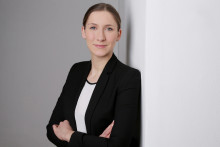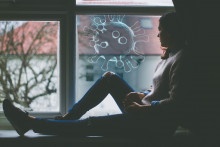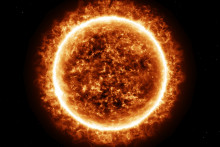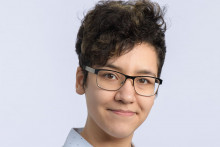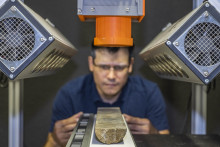- EN
- NL
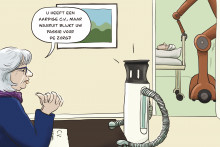 Science
ScienceRobots als oplossing voor het personeelstekort? Veel blijft mensenwerk
De beveiligers bij Schiphol zijn niet aan te slepen en de zorg staat door personeelstekort op knappen. Zijn robots het antwoord op al deze vacatures? UT-experts zien grote mogelijkheden in de nabije toekomst, maar plaatsen ook kanttekeningen.
- EN
- NL
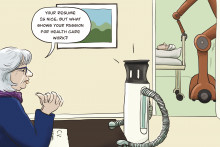 Science
ScienceCould robots solve staff shortages? Humans are not easily replaced
Security guards at Schiphol Airport are in short supply and the healthcare sector is on the verge of collapse due to staff shortages. Are robots the answer to all these job vacancies? UT experts see great potential in the near future, but also make some critical observations.
- EN
- NL
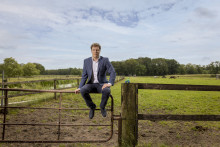 Out of Office
Out of OfficeAmmoniak, troefkaart voor de energietransitie?
Al tijdens zijn stage als chemische technologie student, bij het Deense bedrijf Haldor Topsøe, ondervond UT-promovendus Kevin Rouwenhorst dat er veel mogelijkheden schuilen in ammoniak. Nu wordt dat vooral gebruikt voor het maken van kunstmest, en heeft daarmee een slechte naam. Maar ammoniak is ook een van de zeven chemicaliën die aan de basis staat van alle chemische producten, en het voedt zo’n 50% van de wereldpopulatie.
- EN
- NL
 Out of Office
Out of OfficeAmmonia: a trump card for the energy transition process?
During his internship as a Chemical Technology student at Danish company Haldor Topsøe, UT PhD researcher Kevin Rouwenhorst realised the many opportunities offered by ammonia. At the moment, it is principally used to manufacture artificial fertiliser and therefore has a bad name. But ammonia is also one of seven chemicals that form the basis of all chemical products, and it helps to feed around 50% of the world’s population.
- EN
- NL
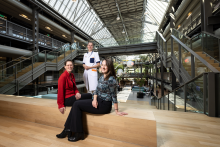 Science
Science‘To empower women through knowledge and innovation’
Did you know that diseases manifest differently in women than in men, and that female patients are more likely to have a negative reaction to medications? In order to provide adequate care for women, a multidisciplinary group of researchers at the University of Twente has formed a new Women’s Health cluster.
- EN
- NL
 Science
Science‘De positie van vrouwen versterken door kennis en innovatie’
Wist je dat ziekten zich bij vrouwen anders manifesteren dan bij mannen? En dat vrouwelijke patiënten vaker slecht op geneesmiddelen reageren? Een multidisciplinaire groep onderzoekers aan de Universiteit Twente werkt in een nieuw cluster Women’s Health aan verbetering van de zorg aan vrouwen.
